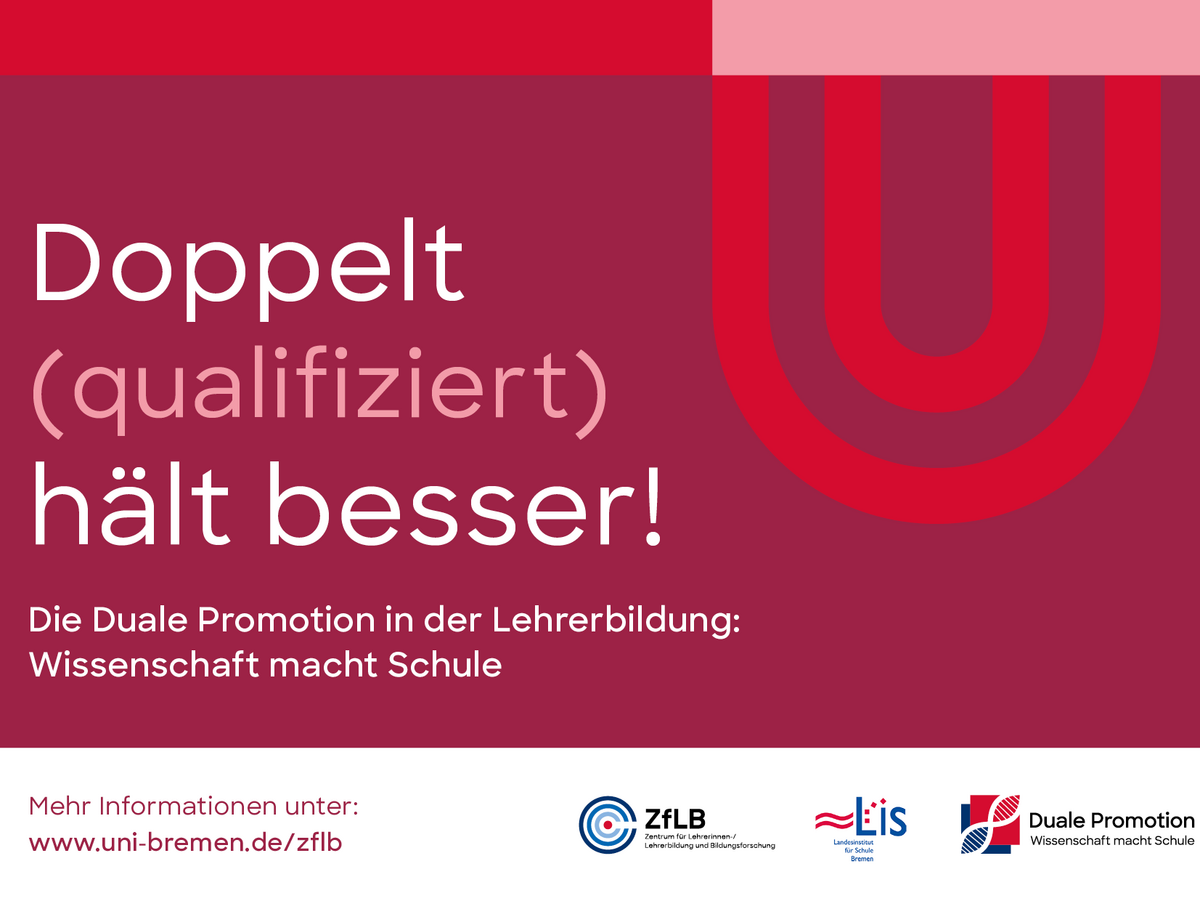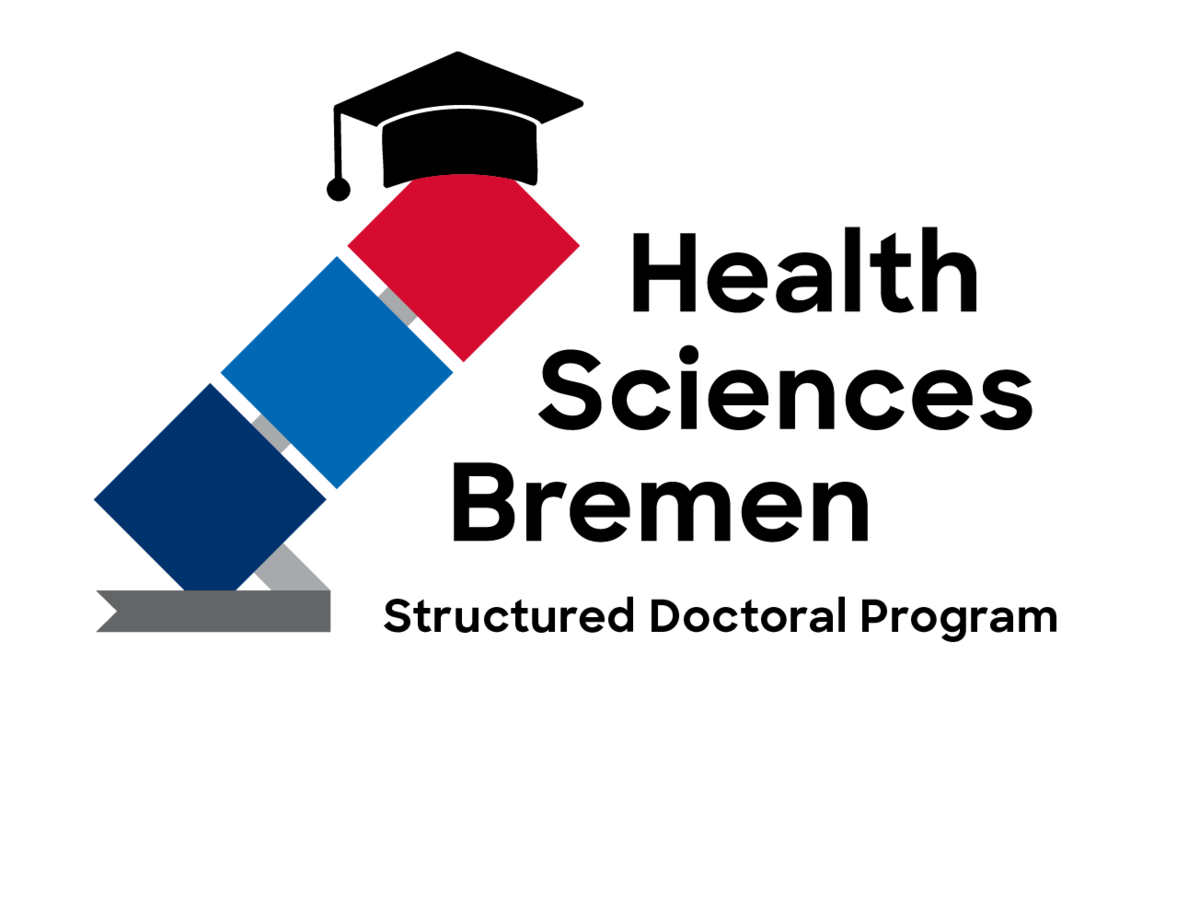Doctoral Programs
The graduate schools, research training groups, and doctoral programs at the University of Bremen support doctoral students from Germany and abroad in an interdisciplinary research environment. In them, the young researchers are given the opportunity for independent research and intensive professional exchange, participate in specially designed courses, and benefit from innovative forms of supervision.
The University of Bremen also cooperates with non-university research institutions in the area of junior researcher support, especially within the context of the International Max Planck Research School for Marine Microbiology MarMic and the Helmholtz Graduate School for Polar and Marine Research POLMAR.
BYRD Bremen Early Career Researcher Development
... is the central point of contact for doctoral students and post-doctoral researchers from all disciplines of the university for interdisciplinary qualification, networking, information, and personal counseling.
moreGraduate Schools

Bremen International Graduate School for Marine Sciences GLOMAR
The Bremen International Graduate School for Marine Sciences has been supported by the Excellence Initiative since 2006. The structured programme serves as a central platform for interdisciplinary training for doctoral students in all marine sciences at the University of Bremen and its partner institutions.
more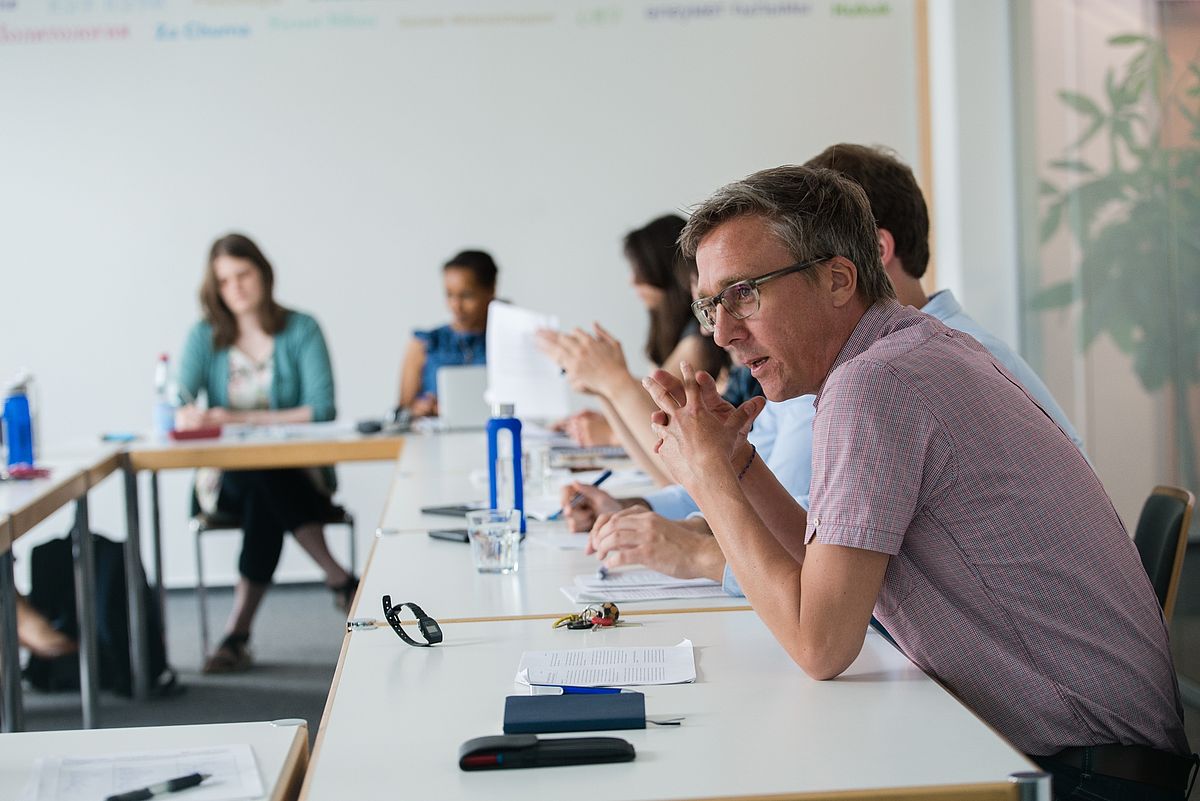
Bremen International Graduate School of Social Sciences BIGSSS
The interdisciplinary Bremen International Graduate School of Social Sciences is based on the core disciplines of political science, sociology, and psychology. BIGSSS was founded in 2008 together with Jacobs University and offers excellent doctoral education in the social sciences.
moreDFG Research Training Groups
Hearable-centered assistance: From sensors to participation
GRK 2969
- Spokesperson: Prof. Dr.-Ing. Andreas Hein, University of Oldenburg
- Vice-Spokesperson: Prof. Dr.-Ing. Tanja Schultz, University of Bremen
Contradiction Studies – Constellations, Heuristics and Concepts of the Contradictory
GRK 2686
- Spokesperson: Prof. Dr. Karen Struve, University of Bremen
- Spokesperson: Prof. Dr. Ingo Warnke, University of Bremen
KD²School – Designing Adaptive Systems for Economic Decisions
GRK 2739
- Spokesperson: Prof. Dr. Christof Weinhardt, KIT
- Vice-Spokesperson: Prof. Dr.-Ing. Tanja Schultz, University of Bremen
CAUSE Concepts and Algorithms for – and Usage of – Self-Explaining Digitally Controlled Systems
GRK 2972
- Spokesperson: Prof. Dr.-Ing. Görschwin Fey, TU Hamburg
- Vice-Spokesperson: Prof. Dr. Rolf Drechsler, University of Bremen
- Vice-Spokesperson: Prof. Dr. Martin Fränzle, University of Oldenburg
Social Dynamics of the Self
GRK 2513
- Spokesperson: Prof. Dr. Ulrich Kühnen, Constructor University Bremen
- Vice-Spokesperson: Prof. Dr. Simone Scherger, University of Bremen
∏³ : Parameter Identification - Analysis, Algorithms, Implementations
GRK 2224
Spokesperson: Prof. Dr. Peter Maaß, University of Bremen
moreMarie Sklodowska-Curie Actions (MSCA) - Doctoral Networks
Project start 01.11.2025
Doctoral Networks
Prof. Rolf Drechsler (Partner)
https://project-react.eu/
Project start 01.09.2025
Doctoral Networks
Prof. Nico Hochgeschwender (Coordinator)
https://cavecore.eu/
Projektstart 01.01.2025
Doctoral Networks
Prof. Armin Dekorsy (Partner)
https://www.6g-terrain.eu/
Project Start 01.03.2024
Doctoral Networks
Prof. Kathrin Huhn (Partner)
poseidon-dn.eu
Marie Sklodowska-Curie Actions (MSCA) - Innovative Training Networks
01.03.2021
Innovative Training Network
Prof. Andreas Kreiter (Partner)
https://in2primatebrains.eu
01.12.2020
Innovative Training Network
Prof. Michael Beetz (Partner)
https://remaro.eu/
Graduate schools with Non-University Research Institutes
International Max Planck Research School for Marine Microbiology MarMic
The International Research School for Marine Microbiology is run jointly by the University of Bremen, the Max Planck Institute for Marine Microbiology, the Alfred Wegener Institute for Polar and Marine Research, and Jacobs University Bremen. MarMic, which is funded by the Max Planck Society, offers a joint master's and doctoral program in marine microbiology.
moreHelmholtz School for Marine Data Science (MarDATA)
The doctoral students of the Helmholtz School for Marine Data Science (MarDATA) are trained in Kiel and Bremen/Bremerhaven. They are jointly supervised by two professors, one at GEOMAR or AWI for the marine research focus and one at the partner university in Kiel or Bremen for the information and data science methods. The doctoral degree is awarded in the fields of computer science/engineering (Dr. Ing.) or natural sciences (Dr. rer. nat.).
moreHelmholtz Graduate School for Polar and Marine Research POLMAR
Doctoral reseachers of the Helmholtz Graduate School for Polar and Marine Research (POLMAR) examine the polar marine ecosystems and climate change. The Graduate School is funded by the Helmholtz Association of German Research Centers. This graduate school is embedded in the Alfred Wegener Institute for Polar and Marine Research (AWI). It involves cooperation between the AWI, the University of Bremen, Max Planck Institute for Marine Microbiology, Jacobs University Bremen, and the University of Oldenburg.
moreRecognised structured doctoral programmes

ZeMKI Doctoral Programme
The doctoral programme of the Center for Media, Communication and Information Research (ZeMKI) deals with the development of media and communication. In deeply mediatized societies, social fields including politics, education, religion, popular culture and art are transforming. Not only changing digital infrastructures, but also innovative practices of media use and datafication play a role. Since phenomena in these thematic fields are multi-layered, the doctoral program as a whole is based on a broad interdisciplinary approach in order to strengthen the respective disciplinary doctorates. The range of disciplines involved in the doctoral programme are broad: in addition to communication and media studies, it includes history, film studies, religious studies, sociology, political science, education, and computer science. The aim of the ZeMKI doctoral programme at the University of Bremen is to provide cooperative and collegial supervision for its doctoral students.
more
The Dual Doctorate in Teacher Training
The program combines teacher training (Referendariat) with a doctoral thesis in didactics. In doing so, the close contact with school practice ensures that today’s relevant questions of teaching development are being researched and that the results are reflected in everyday school life. The “Dual Promotion” is carried out in close collaboration with the University, the LIS (teaching authorities) and the schools and concludes with the second state examination and a PhD in didactics of one of the two school subjects.
moreStructured Doctoral Program Health Sciences
The Structured Doctoral Program Health Sciences brings together and supports doctoral researchers within the University’s High-Profile Research Area Health Sciences. The program provides comprehensive guidance throughout the doctoral journey and supports the development of individualized career paths.Its aims include ensuring a high-quality doctoral process, increasing the program’s attractiveness to doctoral researchers, and preparing them effectively for both academic and non-academic careers after the completion of their doctorate. Core elements of the program include a structured supervision framework a needs-based, discipline-specific, and interdisciplinary training and professional development program that offers both subject-specific and transferable skills development. The program encompasses the disciplines of Health Sciences, Nursing Science, Sports Science, Psychology, and Statistics. The program started on 1.10.2025.
moreRecognition of programmes
For the quality assurance of existing standards, the University of Bremen has a process for the recognition of doctoral programmes by the Research Commission. So far, the "Dual Doctorate" and ZeMKI doctoral programmes have received recognition.
moreFurther doctoral programs
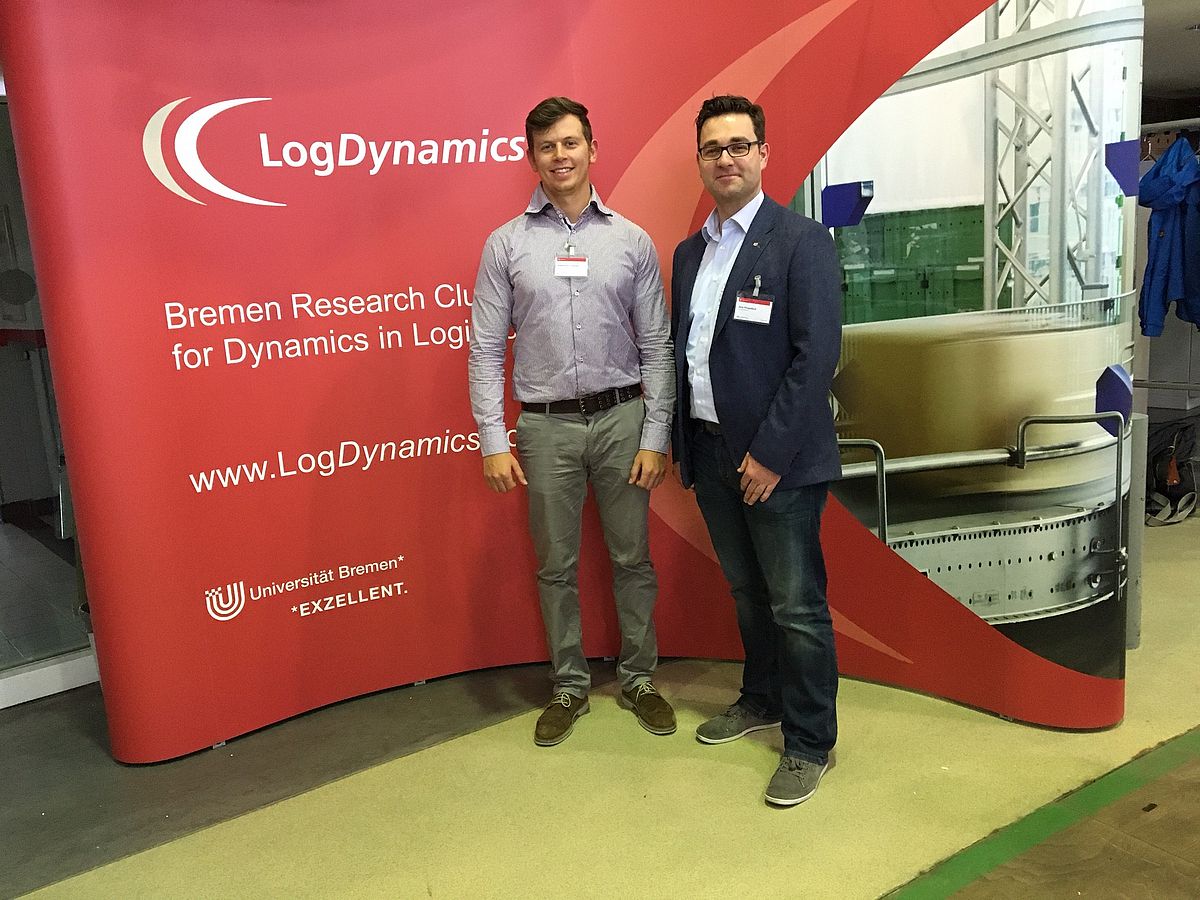
International Graduate School for Dynamics in Logistics LogDynamics
At the International Graduate School for Dynamics in Logistics, doctoral students from the fields of Mathematics/Computer Science, Electrical Engineering and Economics explore issues surrounding production and transport logistics which are becoming increasingly complex in the wake of globalization. This graduate school is supported by the University of Bremen, the Kieserling Foundation, the German Academic Exchange Service, and the enterprise sector.
morePostgraduate International Programme in Physics and Electrical Engineering pip
The postgraduate programme pip funded by the University of Bremen is embedded in the Faculty of Physics and Electrical Engineering. The faculty provides a postgraduate education with outstanding research and training opportunities including excellent research facilities. The goal of pip is to create a supportive environment for its members by offering a wide range of activities, assistance and even additional funding.
Postgraduate students (PhD and excellent master students) are welcome to join us.
more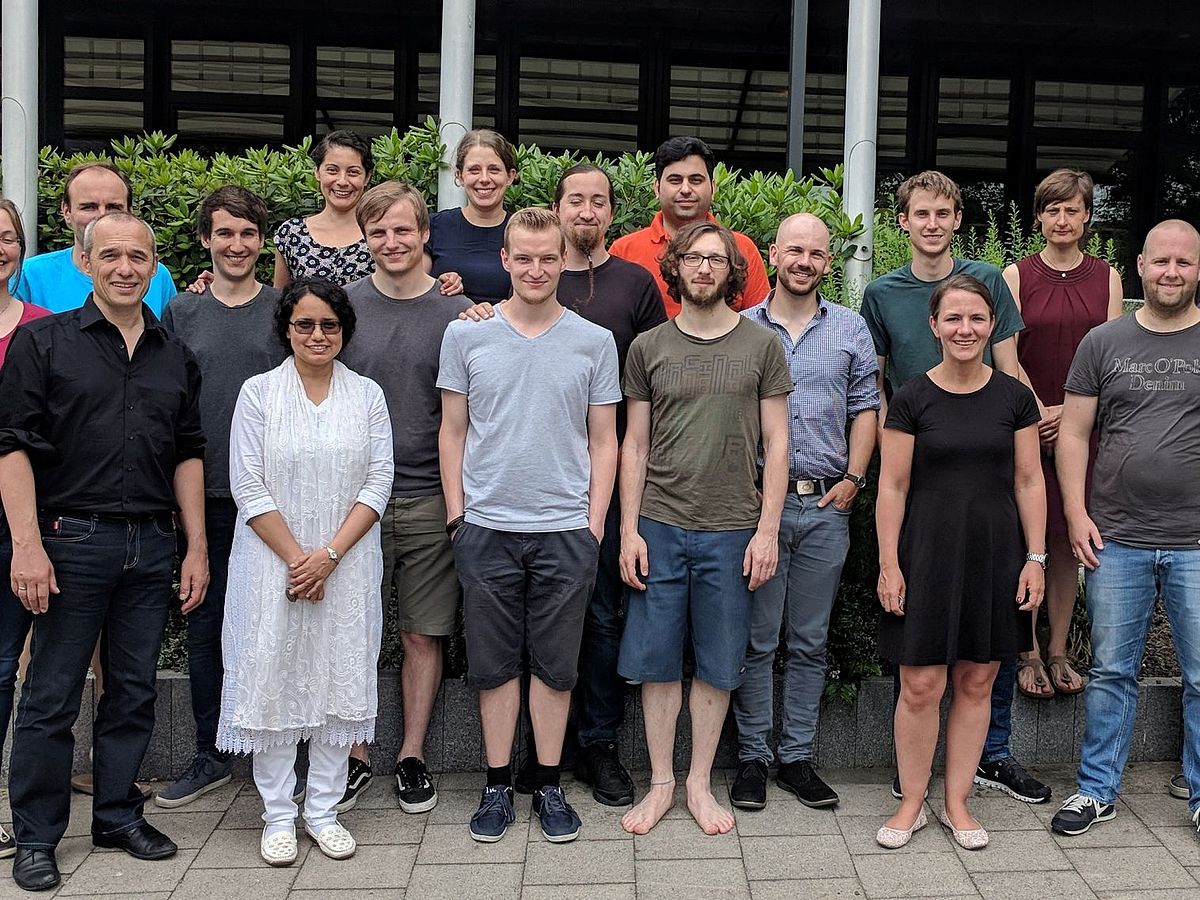
Empowering Digital Media
The graduate school Empowering Digital Media is funded by the Klaus Tschira Foundation. The goal of our graduate school is to research the role of digital media in the digital revolution and to design, develop and evaluate novel user interfaces and artifacts. The program started in 2017.
more
